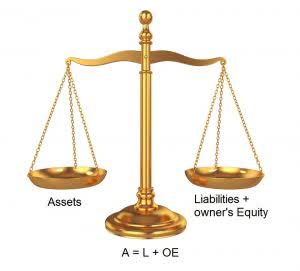
With the right bookkeeping system in place, businesses can have the peace of mind of knowing that their financial records are in order and that they are on the right path to success. Double-entry accounting enters every transaction twice as both a debit and a credit. Your business’s books are balanced when all of the debits equal (or cancel out) all of the credits.


We know, you’re wearing all the hats — creator, marketer, customer service rep, and fulfillment specialist. Without a clear picture of your inflows and outflows, you might find yourself in a tight spot when it’s time to reorder materials or invest in marketing. For instance, office supplies are deductible retained earnings balance sheet in a different way than capital expenses like equipment purchases. Multiple plans to fit different business needs, with more features at higher tiers.

When your business buys stock in another https://www.bookstime.com/blog/how-to-do-bookkeeping-for-cleaning-businesses company, that is an investing activity. Cash flows from operations is the cash activities related to performing the regular, ongoing activities of your business. The difference between the revenue and cost of sales is gross profit. Retained earnings are the dollar amount of earnings reinvested in the business. These are ordered in terms of liquidity or how long it will take for the asset to convert to cash. Each one of these categories can be broken down further into subcategories.

If your company is larger and more complex, you need to set up a double-entry bookkeeping system. At least one debit is made to one account, and at least one credit is made to another account. One of the first decisions you have to make when setting up your bookkeeping system is whether or not to use a cash or accrual accounting system. If you are operating a small, one-person business from home or even a larger consulting practice from a one-person office, you might want to stick with cash accounting.
It might sting a little now, but come tax season, you’ll be glad you did. A professional bookkeeper ensures you’re compliant with all tax regulations, helping you avoid How to Meet Your Bookkeeping Needs penalties. From shipping supplies to that fancy new laser cutter, your business expenses are varied.

The answer is in your bookkeeping and your bookkeeping should be completed every month. If you go this route, make sure to brush up on interview questions that’ll help you determine who’s the best fit. This is all the cash that flows out from your business, such as utilities and employee salaries.
Bookkeeping is important as it helps your business entity to maintain accurate financial records. Relative to the accountants, bookkeepers do not have the formal training or knowledge as they are just responsible for maintaining records of business transactions into an accounting system. Though often confused for each other, there are key differences between bookkeeping and accounting. At its core, bookkeeping is about recording financial data, while accounting is about interpreting financial data.
If you are going to offer your customers credit or if you are going to request credit from your suppliers, then you have to use an accrual accounting system. One of the best things you can do to ensure your books balance properly is to follow the three golden bookkeeping rules. Balancing your books allows you to catch any errors or mistakes in your bookkeeping. Furthermore, there are different types of bookkeepers based on the size and nature of a company. Whether you are new to the industry or are looking to sharpen your skills, here is our guide that covers the basics of bookkeeping. Keeping the retained earnings account up-to-date is important for investors and lenders who need to track the company’s performance over time.